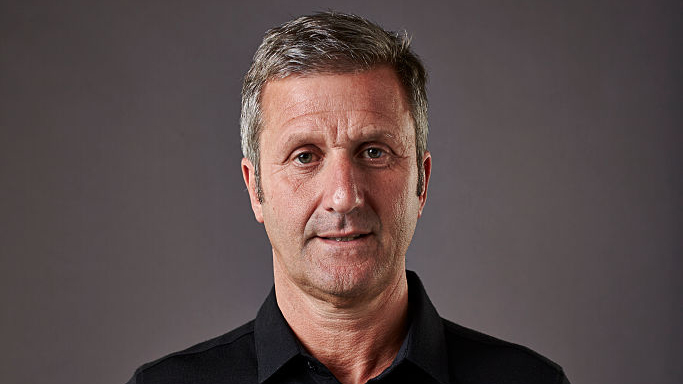Freeman: I've made plenty of mistakes but I'm not a doping doctor
Former Team Sky and British Cycling doctor maintains innocence in wake of tribunal verdict

Former Team Sky and British Cycling doctor Richard Freeman has given his first interview since being found guilty of ordering testosterone 'knowing or believing' it was to be given to a rider at his medical tribunal on Friday, steadfastly maintaining his innocence on that charge.
Freeman, who had previously admitted 18 of the 22 charges levied against him – including buying 30 Testogel sachets in 2011, lying to UK Anti-Doping about the purchase, and keeping inadequate medical records – said on Friday that he didn't buy the Testogel in order to dope a rider.
Speaking to the Mail on Sunday newspaper, Freeman stood by his story that the drug was purchased for Shane Sutton, then a head coach at Team Sky, to treat erectile dysfunction. Sutton has consistently denied that, claiming Freeman was lying, and on Friday was deemed a credible witness in Friday's verdict.
"It's so disappointing. It's unbelievable," Freeman told the MoS after the verdict was announced. "I have never doped a rider in my life. I'm still to see any evidence of who this rider supposedly was. I accept there are people who don't believe me. They will say I've lied and changed my story and can't trust anything I say. I've admitted to those lies.
"And, yes, I deserved the GMC tribunal. But I can say with a clear conscience that I didn't order Testogel knowing or believing it was for cheating.
"I'm still shocked at this verdict. I've made plenty of mistakes but I'm not a doping doctor."
Freeman also reiterated his innocence surrounding the infamous Jiffy-bag at the 2011 Critérium du Dauphiné, stating that he did not give Bradley Wiggins the corticosteroid Triamcinolone – banned in competition without a therapeutic use exemption – at the race.
Get The Leadout Newsletter
The latest race content, interviews, features, reviews and expert buying guides, direct to your inbox!
"I said under oath at the GMC that I did not inject Bradley Wiggins with Triamcinolone on the back of the bus in June 2011, and I'll defend that to my dying breath."
On Friday, the chair of the MPTS, Neil Dalton said: "The tribunal had found that you, Dr Freeman placed the order, and obtained the Testogel, knowing or believing it was to be administered to an athlete to improve their athletic performance. The motive for your action was to conceal a conduct."
Freeman initially denied ordering the Testogel during a UK Anti-Doping investigation, but later admitted that he had done so in error, before claiming that he had done so on behalf of Sutton.
The tribunal found that Freeman's attempts to cover up his actions were "to conceal your motive conduct", while the 46-page verdict also concludes that no evidence was produced to show that Sutton had used Testogel in 2011.
"I believe in due process," Freeeman told the Mail on Sunday. "I believe in evidence. I believe the truth will come out. I'm not a doper."
He also told of how the tribunal process took a toll on his health, recounting an episode that saw him go to hospital with chest pains in late February. After initial fears he was suffering from a heart attack, tests showed that Freeman had ulcers which were burning his oesophagus.
"I was terrified the chest pain might come back that night," said Freeman, who has previously revealed mental health problems over the past few years. "Everyone says doctors don't look after themselves. I'd never had my blood pressure checked. My cholesterol was last checked perhaps 15 years ago.
"People say there are moments that change your perspective on life and in the hospital that night, I did. It has been stressful these past few years but what matters is health, family, getting on with my life."
Freeman was back at work in Blackburn on Friday, having been called back to frontline medicine amid the COVID-19 pandemic. His tribunal is currently adjourned until Wednesday March 17, at which point the second stage will begin with the aim of ascertaining whether his fitness to practice is impaired.
"It's ironic isn't it?" he said. "A year ago, I got an email from the GMC asking me if I'd please think about returning as a doctor to frontline medicine to help with national health emergency. Even as we were in the middle of a GMC tribunal.
"I didn't hesitate. I've never worked harder. I've never done anything more important. You remember at times when life gets rough what really is important."
Cyclingnews is the world's leader in English-language coverage of professional cycling. Started in 1995 by University of Newcastle professor Bill Mitchell, the site was one of the first to provide breaking news and results over the internet in English. The site was purchased by Knapp Communications in 1999, and owner Gerard Knapp built it into the definitive voice of pro cycling. Since then, major publishing house Future PLC has owned the site and expanded it to include top features, news, results, photos and tech reporting. The site continues to be the most comprehensive and authoritative English voice in professional cycling.